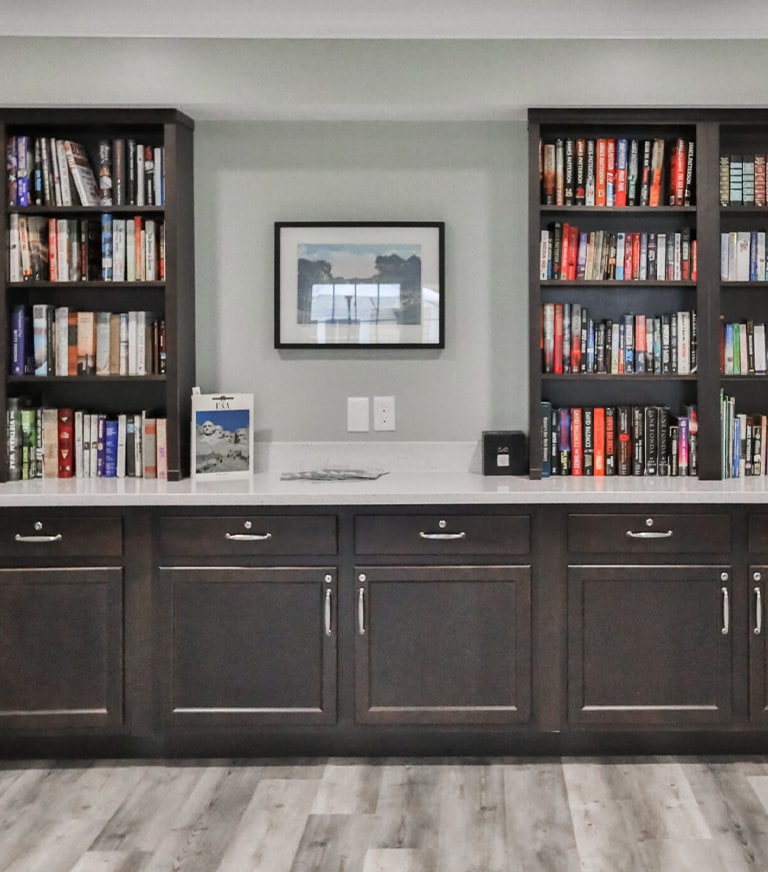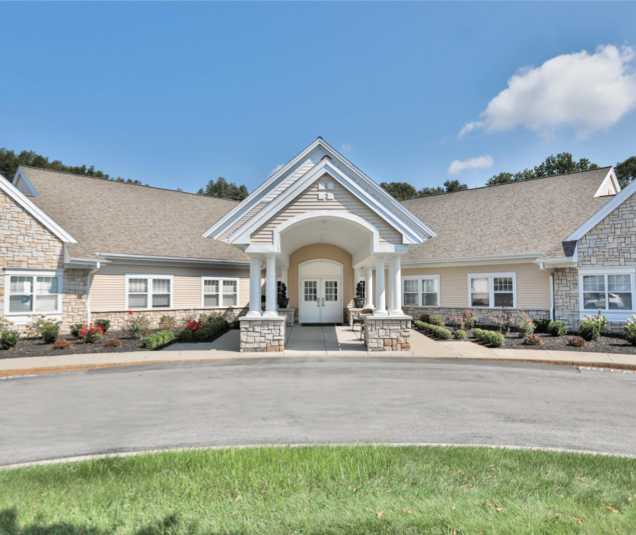Dementia is a life-altering condition that affects millions of people and their families. If you’re unable to visit your parent who has dementia, you may feel helpless, overwhelmed, or even guilty.
However, there are meaningful ways to stay connected, even when you can’t be physically present, such as staying informed through healthcare professionals, keeping in touch with caregivers, using technology to communicate, and offering emotional support to family.
What Is Dementia?
Dementia is an umbrella term for a group of symptoms that impact cognitive functions like memory, thinking, and reasoning. As dementia progresses, it can interfere with daily activities and make it challenging for individuals to care for themselves.
While Alzheimer’s disease is the most common type of dementia, several other forms exist, including vascular dementia, frontotemporal dementia, and Lewy body dementia.
5 Ways to Stay Connected with a Parent with Dementia When You Can’t Visit
Even if you can’t be there in person, there are many ways to stay close and connected with your loved one.
Establish a Routine to Stay Connected
Consistency is one of the most crucial aspects of communicating with a loved one with dementia. Establishing a routine can offer comfort and reassurance.
While in-person visits may not always be possible, setting up regular phone calls and video chats or sending letters can provide a sense of continuity.
Things You Can Do
Set a regular call schedule. Make it a habit to call your parent at the same time every day or week. Routine calls will help your parent anticipate and prepare for these interactions. While phone calls may not always seem like they’re getting through, repetition can offer familiarity.
Send letters or emails. Write short notes or emails that keep your parent updated with family news, photos, or shared memories. Regularly receiving these messages can bring comfort, even if your parent can’t remember the details.
Record audio or video messages. Record short, heartwarming audio or video messages your parent can listen to or watch anytime. Use messages of love, encouraging words, or even old songs that may spark memories.
Meet the Doctor & Stay Informed
If your parent is living in a memory care community, it’s essential to maintain a connection with the medical professionals involved in their care. Meeting your parent’s doctor can provide valuable insights into their condition and help you stay informed about their needs.
Things You Can Do
Schedule regular check-ins with the doctor. Ask to schedule periodic calls or virtual meetings with your parent’s doctor to discuss their health, treatment plans, and progress. This allows you to stay informed about changes in their condition.
Request detailed updates. In addition to meeting the doctor, you can request detailed updates from the memory care facility staff. This might include insights into your parent’s behavior, well-being, and any changes in their cognitive abilities.
Maintain Communication with Caregivers
Another way to stay connected is by engaging with the caregivers involved in your parent’s daily care. Regular communication with caregivers is crucial, whether they are family members, hired professionals, or staff at a memory care community.
Things You Can Do
Check in with other family members. If you have siblings or other relatives who are actively involved in your parent’s care, talk with them regularly. Share updates, express your concerns, and offer emotional or practical support.
Coordinate with the care staff. Whether through phone calls, email updates, or scheduled visits (when possible), staying informed helps your parent receive appropriate care as their needs evolve.
Offer words of encouragement. Caregiving is a team effort; small gestures like sending a thank-you note or offering words of appreciation can go a long way in boosting caregivers’ morale.
Utilize Technology to Your Advantage
Technology has revolutionized how we connect with loved ones, even those facing cognitive challenges. Numerous digital tools and apps can help you stay connected with your parent, even from afar.
Things You Can Do
Use video calls. If your parent is in the early stages of dementia and is still comfortable with technology, consider setting up a simplified video call device for regular calls. Seeing familiar faces can help your parent feel more connected and less isolated. Keep video calls brief and gentle to prevent overwhelming them.
Play music or watch shows together. Many people with dementia respond positively to music or familiar TV shows. Consider playing their favorite songs or sharing a video of a beloved TV program to invoke memories and promote a sense of security.
Set up virtual reality (VR) experiences. If appropriate, some individuals with dementia can benefit from virtual reality experiences that allow them to virtually visit places they love or calming environments.

Support Each Other as a Family
Caring for a loved one with dementia can be challenging, and it’s essential for family members to support one another during this time. Whether you’re near or far, sharing the emotional load and offering help can comfort all involved.
Things You Can Do
Talk openly about feelings. As an adult child or family member, talk openly with loved ones about your feelings of loss, frustration, and sadness. Recognizing that you’re not alone can help relieve emotional burdens.
Consider family therapy. Sometimes, professional support such as family therapy or counseling can help siblings and other relatives navigate the emotional complexities of dementia caregiving.
Participate in caregiving training. By educating yourself and loved ones using training and resources offered by local Alzheimer’s associations or memory care communities, you can better understand your parent’s condition and reduce feelings of helplessness.
Supporting Your Loved One with Dementia
If you’re considering memory care for a loved one with dementia, Peregrine Senior Living at Clifton Park is here to provide the support and care they need. Schedule a tour today to learn more about how we can help your family during this challenging time.











No more posts